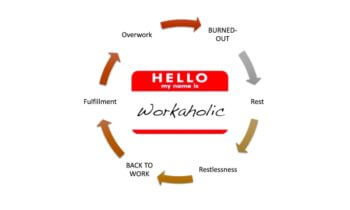To begin I would like to start with a short story about my experience of turning failure into opportunity.
After starting and selling two successful companies, I was ready for a new challenge - starting a company in another country. I began with a round-the-world scouting trip going to the most ‘business friendly’ countries. In the end, I chose Singapore due to its tax and business strengths and logistical position.
With my business contacts, start-up money, local residence set up, and lots of paperwork, I received my coveted entrepreneur pass from Singapore called the “EntrePass”. This allowed me to set up a new company in Singapore. After all the work to obtain this, I thought I had set myself up for success, but actually it was the opposite.
Plans can change, so role with the punches
 After my first few years of struggling, I thought maybe I’d underestimated the amount of money needed to establish myself. Maybe it was a problem with my business plan, or target audience. Maybe it was a problem with my partners, implementation or even my entrepreneurial skills. In the end, I moved to Korea with an entirely different shift in concept… One Mean Dream.
After my first few years of struggling, I thought maybe I’d underestimated the amount of money needed to establish myself. Maybe it was a problem with my business plan, or target audience. Maybe it was a problem with my partners, implementation or even my entrepreneurial skills. In the end, I moved to Korea with an entirely different shift in concept… One Mean Dream.
Even though I felt like a horrible failure in the beginning, I don’t regret the attempt, nor my time in Singapore. Now a few years wiser, I realized the real failure of this endeavor was an underestimation of the cultural view of time that eventually did me in.
You see my business plan required me to show a strong web presence to make the business successful and to raise sufficient start-up capital. The bids we received in Singapore seemed quite high, so we looked to Indonesia for our solution.
Time is money, and time costs more in a foreign land
Cheap is not necessarily inexpensive
Back in Singapore, the programmers, web developers and visual design artist’s fees were a fraction of the cost of the Singapore bids. This sounded great because we thought we could save a fortune and still get the same results. The problem was Indonesian culture basically views time though the lens of the past, while the western tend view time towards the future. Many of the ‘eastern cultures”, especially Indonesia, revolve around the present, with the belief that one should enjoy the day, because the future is not certain. Now, this is a great approach to life, when you have a lifetime to accomplish your goals and aren’t under the time restraints a deadline.
The real problem wasn’t noticeable in the beginning, The first few months we stayed in contact through Skype and email. However I noticed with the passing of each deadline, their response was “no problem, it will be done in a few weeks”. After a few months of this “in a few weeks routine” I had to fly back to Indonesia and work with them every day for a month. When I was with them things got done, until I left and everything went back to the same excuses and pushed back deadlines. Flying back each time brought us nearer to a working model, but not without wasting time and draining our start-up capital.
C ounting the cost - not as easy as it seems
ounting the cost - not as easy as it seems
The problem was not the cost of flying back and forth, but the cost of running the other aspects of the business back in Singapore. When I was busy in Indonesia, the things needed to be done in Singapore were put on hold. But the cost of business never slows down or stops, just because you do.
In the end, their “in a few weeks” turned into a few months. A few months turned into a year. And after a year of dwindling finances, I still didn’t have an operational site, nor the ability to show off what my business had to offer. Without this, I wasn’t able to raise the capital needed to continue on. So I shut everything down, cut my losses, and moved to Korea. The moral from this story: “Time is money, and time costs more in a foreign land”.
The good (or bad) thing about this story is that not everyone has to move to another country to find business failure. They are all around us. The only question is - Do we learn from our failures and move on, or use them as an excuse to not try anymore.
Turning failure into opportunity
1: Try to change the way you think about failure:
We experience many things both before and after failure. With the right attitude we can use the lessons learned to our advantage. But only if we don’t dwell on our failures and mull them over and over in our minds. If we can change our attitude from a loosing mind-set, it’s easier to not sabotage ourselves repeatedly. When we move on, we free ourselves up to grab ahold of opportunity when it re-presents itself.
2. Cheap is not the same as inexpensive
What appears to be an inexpensive alternative may not be. Cheap has more to do with quality and ability to perform than it does cost. Many times ‘cheap’ may save you money, but can eat up too much of your time and the ultimate frustration when it fails to meet its intended result. Then we spend more money on a replacement (and clean up the mess cheap leaves behind). Many times our failures can be attributed to taking the cheap or easy way. It may not be a matter of delivery of your product or service, but with the quality.
3. The grass is not always greener on the other side.
The apparent success of the “other guy” can be deceiving. Sometimes we need to copy our competitors success. However, their success may only be a mirage (like sacrificing profit margins by under-bidding everyone else, or going deep in debt just to keep up appearances). Copying another business model may lead us to move outside our strengths, divert our attention and waste our precious time. Business expansion is great when it works, but can also kill a company. If you do decide to change physical locations, especially abroad - Don’t underestimate cultural differences, communication styles, contract negotiations and any legal consequences (since codes, laws, rules, and regulations may change dramatically even one state over).
4. No one plans to fail, most just fail to plan.
Like the saying goes - One hour of planning can save 4 hours of work. Sometimes failure is simply not thinking things through beforehand. This is why a business plan (even a simple one) can help keep us on track. I often have to remind my students that: “our brains forget, but paper does not:. Writing things down helps us organize our thoughts, think through possible problems, focus our attention on whats important and just how we plan to run our business.
5. We fail, but are not failures
Life is supposed to be full of surprises. If we always win it wouldn’t be a surprise. We should not allow ourselves to be defined by our failures. Others may remember, but our job is to accept our failures, deal with any lasting negative emotions and then move on with our lives. Learning from them, not controlled by them. In the end, our failures can bring about other opportunities. If we allow ourselves to move beyond and continue to jump on the opportunities that are bound to come our way.
6. Contacts and Networks are greatest chance for future opportunities.
Although we may have failed, we still have the people, resources, information and experiences we gleaned along the way. For example my business failure in Singapore also lead me to a contact person who was instrumental in helping me become a Univesity Professor in Korea! So don’t burn all your bridges, keep in contact to the people you met and continue to build the networks you started. They might just lead you to a better opportunity.



